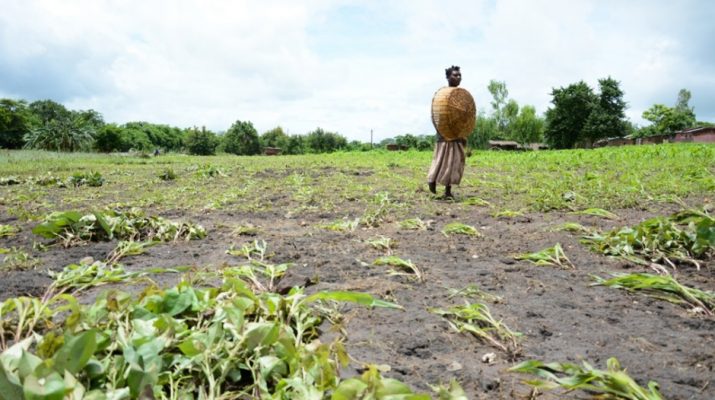The report, “A New Vision for Weather and Climate Services in Africa,” highlights new technologies and new approaches that will enable sub-Saharan African countries to support the sustainability of investments in the weather and climate services sector\
During today’s climate talks in Marrakech, the United Nations Development Programme (UNDP) launched a report that focuses on a new approach adopted by African leaders to proactively support the sustainability of investments in weather and climate services across the continent.
The report, “A New Vision for Weather and Climate Services in Africa,” highlights new technologies and new approaches that will enable sub-Saharan African countries to support the sustainability of investments in the weather and climate services sector, and improve efforts to adapt to a changing climate in Africa.
“As we move further into the 21st century and the average global temperature increases, we are likely to witness more frequent and severe weather, droughts, floods, and sea level rise around the globe. If not addressed, as committed to by world leaders in Paris, climate change will be a major challenge to efforts to achieve the Sustainable Development Goals,” said Bonizella Biagini, Programme Manager for UNDP’s Programme on Climate Information for Resilient Development in Africa (CIRDA).
“Providing accurate, reliable, and timely weather and climate information is central to building resilience to climate change, empowering nations, saving lives and strengthening livelihoods across Africa’s most vulnerable communities.”
On a macro-economic and global policy level, a failure to accurately provide warnings on fast-acting storms and other extreme climate events not only takes lives, it also affects production levels and hinders economic development, according to the report.
Citing a joint study from the World Meteorological Organization and the Centre for Research on the Epidemiology of Disasters, the report concludes that “from 1970 to 2012, there were 1,319 reported weather-related disasters in Africa that caused the loss of 698,380 lives and economic damages of US$26.6 billion.”
The Intergovernmental Panel on Climate Change has also identified Africa as the continent most vulnerable to climate change, with projected reductions in agricultural yield as much as 50 percent and net crop revenues dropping by up to 90 percent by 2100.
Investing in weather and climate services is a smart investment, according to report authors. World Bank estimates indicate that “upgrading all hydro-meteorological information production and early-warning capacity in developing countries would save an average of 23,000 lives annually and would provide between US$3 billion and US$30 billion per year in additional economic benefits related to disaster reduction.”
“While people in Africa have contributed the least to human-induced climate change, they are among the most vulnerable to its effects. Every year, thousands of lives and countless millions of dollars of livelihoods, crops, and infrastructure investments are lost due to severe weather, contributing to a poverty trap,” said Biagini.
“Timely and effective early warnings and improved climate information can help minimize these losses by improving decision making in government and communities. Businesses, from the large to the micro, benefit from access to quality and localized weather information.”
The report is a learning product from the UNDP’s CIRDA Programme, a four-year programme supporting climate information and early warning systems projects in 11 African Least Developed Countries with $50 million from the Global Environment Facility’s Least Developed Countries Fund (LDCF).
The peer-reviewed publication builds on the expertise of world-renowned experts in meteorology, hydrology, new technology and sustainable development, as well as a cross-continental UNDP market study on “Revenue Generating Opportunities Through Tailored Weather Information Products.”

